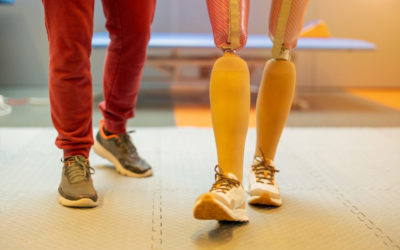Quick Hits
Daily brief research updates from the cognitive sciences

Gratitude is a nice thing to have, I think we all agree on that. But when it comes to the workplace some may see it is just being nice, and not being focused enough on the hard realities of work. Or worse see it as turning the workplace soft! But a study just out, shows how gratitude can have multiple positive impacts – also on performance.
How did they measure this?
The researchers at the University of California put 200 participants through a high-stress competitive task in teams of two. This involved a task that was basically impossible to complete: coming up with a proposal in 6 minutes for a product to use on campus and followed by a six-minute presentation to a panel of judges. As you can see this is designed to optimally raise stress within very short- time frames to complete a task and then face a panel of judges. This was also combined with a financial reward of $200 dollars to give financial incentives meaning something was also at stake. Increasing rewards has also been shown to increase stress.
During the task participants wore electrodes on their heart and neck to measure heart signals and also wore a blood pressure cuff to monitor blood pressure.
Some of the teams were randomly assigned to express gratitude whereby one team member would express gratitude or thanks to the other team member prior to completing the task.
What were the results?
In both parts of the experiment, the design phase and the pitch phase, a short gratitude intervention, of one team member expressing gratitude to the other, improved cardiovascular responses. This pushed the response pattern from a negative stress response to what is known as a challenge response. This is when stress optimises performance rather than restricts performance.
This shows that gratitude lowers stress and improves performance in either a creative collaborative task or a high stakes performance tasks such as presenting to this panel of judges.
The researchers note that this gratitude intervention increases concentration, gives more confidence, and allows more people to reach peak performance. All while avoiding the negative effects of stress. This not to mention playing a fundamental role in strengthening relationships.
If that ain’t a good thing, I don’t know what is●

Andy Habermacher
Andy is author of leading brains Review, Neuroleadership, and multiple other books. He has been intensively involved in writing and research into neuroleadership and is considered one of Europe’s leading experts. He is also a well-known public speaker speaking on the brain and human behaviour.
Andy is also a masters athlete (middle distance running) and competes regularly at international competitions (and holds a few national records in his age category).
Reference
Yumeng Gu, Joseph M. Ocampo, Sara B. Algoe & Christopher Oveis.
Gratitude Expressions Improve Teammates’ Cardiovascular Stress Responses.
Journal of Experimental Psychology: General (In press), 2022
More Quick Hits
The Seven Habits to Reduce Dementia
We would all like to age well remaining cognitively active into older and old age. I have reported multiple times…
Mind Over Matter – Regaining Movement
This is the type of study and insight I like. Kind of amazingly simple but effective
Do We Lose Brain or Muscles First?
As we age things start to decline, we all know that – happens to the best of us…
Cravings for Fatty Food and the Gut-Brain Connection
Research hot off the presses is showing something interesting happening with our desire for fatty food….
How to Form Optimal Groups for Learning
There has been a long-standing debate and discussion in learning contexts for what is the best way to form groups for optimal learning when there are different abilities in those groups…
Extreme Temperatures Increase Hate Speech Online
I am sure we all know that feeling of getting more irritable when temperatures rise – well we now have evidence that…






